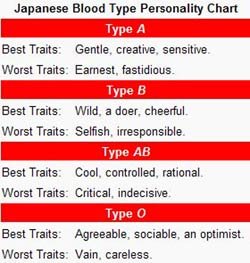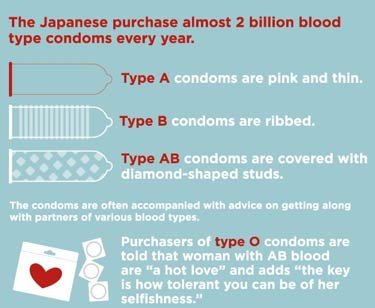Category Archive 'Blood Types'
18 Jul 2014


Carl Zimmerman‘s article at Ars Technica offers a useful precis.
Why do 40 percent of Caucasians have Type A, while only 27 percent of Asians do? Where do different blood types come from, and what do they do?
To get some answers, I went to the experts—to hematologists, geneticists, evolutionary biologists, virologists, and nutrition scientists. In 1900, the Austrian physician Karl Landsteiner first discovered blood types, winning the Nobel Prize for his research in 1930. Since then, scientists have developed ever more powerful tools for probing the biology of blood types. They’ve found some intriguing clues about blood types—tracing their deep ancestry, for example, and detecting influences of blood types on our health. And yet I found that in many ways, blood types remain strangely mysterious. Scientists have yet to come up with a good explanation for their very existence.
“Isn’t it amazing?†says Ajit Varki, a biologist at the University of California at San Diego, “Almost a hundred years after the Nobel Prize was awarded for this discovery, we still don’t know exactly what they’re for.”
I’m Type O, RH positive myself.
13 Nov 2012


The BBC reports on the Japanese obsession with ketsueki-gata, a form of racialist junk science resembling astrology, which claims to be able to predict a person’s personality, temperament, and behavioral propensities from his blood type.
[In Japan,] a person’s blood type is popularly believed to determine temperament and personality. “What’s your blood type?” is often a key question in everything from matchmaking to job applications.
According to popular belief in Japan, type As are sensitive perfectionists and good team players, but over-anxious. Type Os are curious and generous but stubborn. ABs are arty but mysterious and unpredictable, and type Bs are cheerful but eccentric, individualistic and selfish.
About 40% of the Japanese population is type A and 30% are type O, whilst only 20% are type B, with AB accounting for the remaining 10%.
Four books describing the different blood groups characteristics became a huge publishing sensation, selling more than five million copies.
Morning television shows, newspapers and magazines often publish blood type horoscopes and discuss relationship compatibility. Many dating agencies cater to blood types, and popular anime (animations), manga (comics) and video games often mention a character’s blood type.
A whole industry of customised products has also sprung up, with soft drinks, chewing gum, bath salts and even condoms catering for different blood groups on sale.
—————————–
Types defined at length.
—————————–

Condoms (accompanied by special romantic advice) and perfume are marketed by blood type.
29 Feb 2012


Science Daily reports that the count of blood group proteins has been increased for the first time in more than a decade by two more, raising the count from 30 to 32.
You probably know your blood type: A, B, AB or O. You may even know if you’re Rhesus positive or negative. But how about the Langereis blood type? Or the Junior blood type? Positive or negative? Most people have never even heard of these.
Yet this knowledge could be “a matter of life and death,” says University of Vermont biologist Bryan Ballif.
While blood transfusion problems due to Langereis and Junior blood types are rare worldwide, several ethnic populations are at risk, Ballif notes. “More than 50,000 Japanese are thought to be Junior negative and may encounter blood transfusion problems or mother-fetus incompatibility,” he writes.
But the molecular basis of these two blood types has remained a mystery — until now.
In the February issue of Nature Genetics, Ballif and his colleagues report on their discovery of two proteins on red blood cells responsible for these lesser-known blood types.
Ballif identified the two molecules as specialized transport proteins named ABCB6 and ABCG2.
“Only 30 proteins have previously been identified as responsible for a basic blood type,” Ballif notes, “but the count now reaches 32.”
The last new blood group proteins to be discovered were nearly a decade ago, Ballif says, “so it’s pretty remarkable to have two identified this year.”
Your are browsing
the Archives of Never Yet Melted in the 'Blood Types' Category.
/div>

Feeds
|







